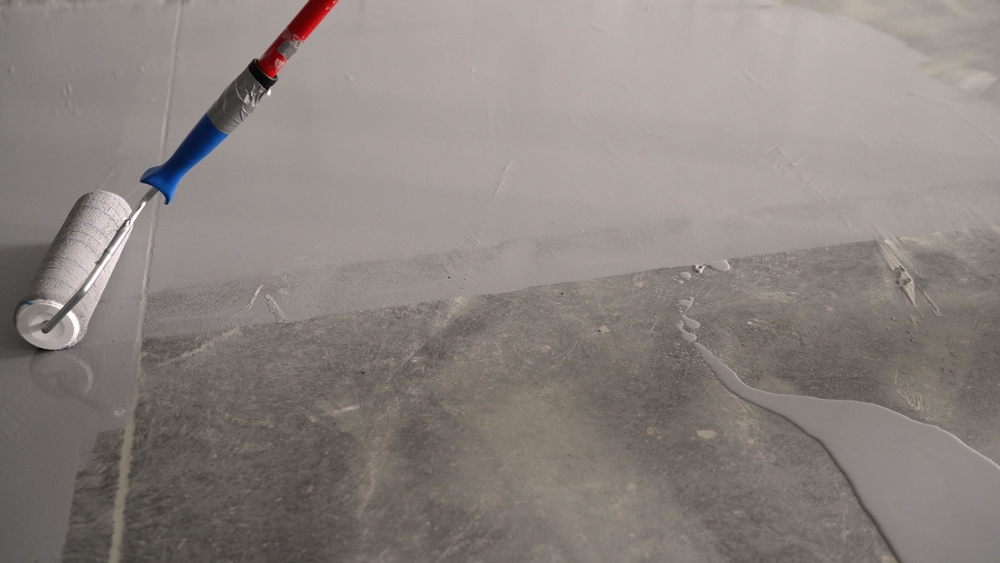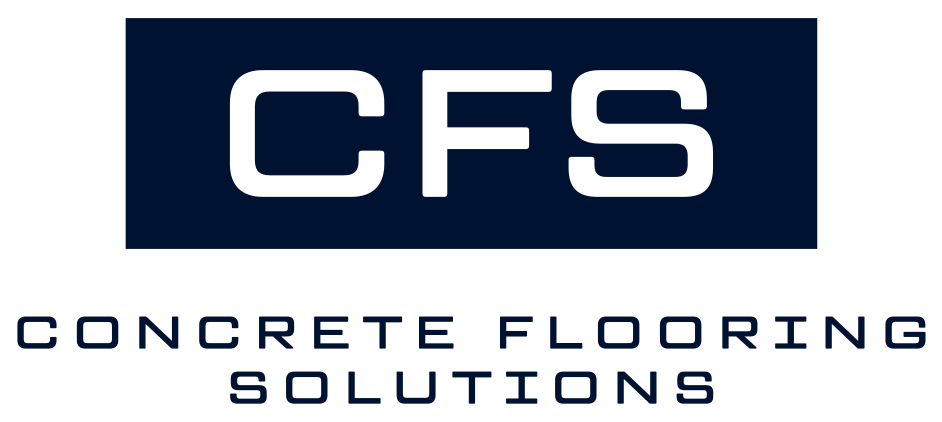Can You Seal Concrete For Uneven Surfaces?
Preparing Your Concrete Floor
In many cases, it’s important to prepare aggressively rough, uneven floors before treating them with epoxy resin. While epoxy can be used for a variety of different purposes, when pouring on a concrete surface there is a balance between the floor being too worn, dirty, and cracked and being too smooth or fresh. Ideally, concrete surfaces are clear of debris and dirt, are level, and any cracks or other damages have been repaired. Epoxy resin will struggle to adhere to a very rough and damaged surface. Any debris, dust, or dirt that is left on the floor surface will likely prevent proper installation and can cause serious issues with the epoxy coating.
Get a Quote on Epoxy Flooring Today
Epoxy & Rough Concrete Flooring

Epoxy flooring is made using a resin that binds to the existing flooring. In order to ensure the resin properly adheres to the floors it’s important to make sure the flooring isn’t too smooth. After removing anything that has stuck to the floors like paint or spills a professional flooring team can add a texture to the concrete. This isn’t always necessary, but in cases where the surface of the floor is polished or has been treated to make it smoother adding a texture will help. With a rough, textured surface the resin is able to fill in the grooves and pores of the floor which lets the resin bond more tightly. This process is typically done with a grinder or similar tool that is run along the surface to add a rough texture. A professional flooring business will be able to assess the flooring to determine if grinding and other preparation techniques are required before pouring the epoxy floor coating.
Cracks in Concrete
If the flooring has any cracked areas it can impact the installation process. Any larger, more noticeable cracks in the flooring should be filled prior to applying the epoxy coating. Using a commercial-grade process to fill cracks will eliminate future problems after the epoxy floors and allow the installation process to go smoothly. The process of preparing a concrete floor for the resin coating can vary on the state of the floors but may include cleaning debris, stripping paint, leveling uneven flooring, grinding, rinsing the floors, and more. Continue reading to learn about how the surface of your existing flooring can impact the final result of epoxy flooring.
How Epoxy Resin Works with Uneven Floors

An epoxy resin can fix very small issues in concrete, which can make installation quick and easy, but in cases where the floors are chipped, cracked, and have uneven patches the floor should be corrected. Peeling and cracking may occur if the concrete floors are not properly prepared. Depending on the severity of the imperfections they may not be concealed, and may even be more noticeable after the epoxy resin is poured. An uneven floor can even cause the epoxy to not properly bond, which will likely cause issues with the floor early on. By having a professional inspect the floors they can provide better insight and explain what the best options are.
Epoxy Flooring on Sloped Floors
An interesting benefit that comes along with epoxy floors is that it can be installed on a sloped floor. A sloped floor may require preparation in order to avoid future issues. In many commercial and industrial settings, this is a technique used to assist water drainage. An epoxy floor will have a smooth coating and liquid will easily slide across it. By having an uneven epoxy flooring water and other liquids will easily move across the floor and pour into a drain. It’s important to consult a professional who works with epoxy regularly to understand if your space meets the requirements for a sloped resin floor. In some circumstances, a space shouldn’t have a sloped floor because of potential water pooling. When stagnant water can become a hazard and even create an environment for mold and bacteria to flourish. Concrete Flooring Solutions will assess your floors to determine what preparations must be done in order to successfully pour and install an epoxy coating. Leveling the floor may be the best option for your specific room, building, or garage.
Unique Applications of Epoxy Flooring

Epoxy resin is an extremely versatile material that has many applications. Oftentimes people think of epoxy flooring as a great option for a garage, but epoxy can be used for many other areas and rooms. In residential properties, epoxy can be used in any space including basements, bathrooms, kitchens, garages, hobby rooms, and more. Epoxy resin flooring has endless potential in commercial spaces. Epoxy can be used in restaurants, professional kitchens, auto shops, showrooms, warehouses, business lobbies, and many more spaces. Epoxy floors are easy to clean and if properly cared for can be extremely durable. By keeping the floors consistently clean an epoxy surface can look like-new for many years. Regardless of where you install epoxy floors, you can maintain the beautiful coating by removing small debris frequently so it doesn’t scratch the surface of the floor.
Schedule a Consultation Visit Today
Work With CFS!
Epoxy Floors are a durable and unique way to revitalize an older concrete surface. Epoxy is an affordable alternative to replacing a concrete surface that is durable and completely customizable. We can easily color-match existing colors for an epoxy floor, create interesting patterns, mimic natural materials like marble and wood, and add interesting visual textures. Concrete Flooring Solutions offers our epoxy services to commercial, industrial, and residential spaces. To learn more or to schedule an estimate for your space, reach out to us today.
seal concrete seal concrete seal concrete seal concrete
